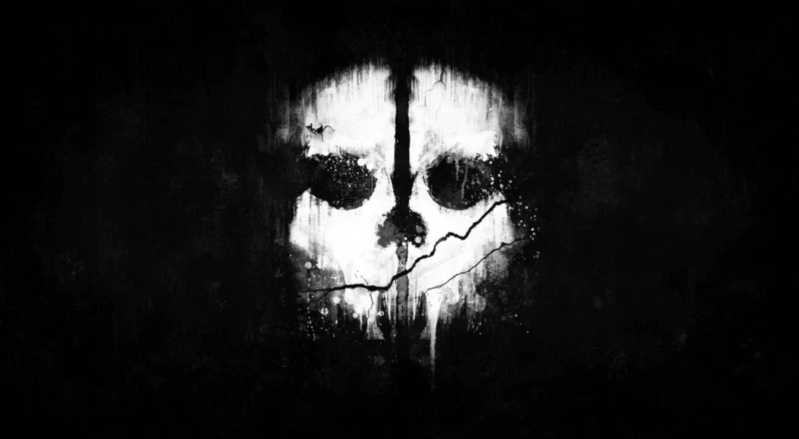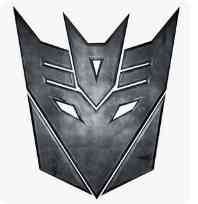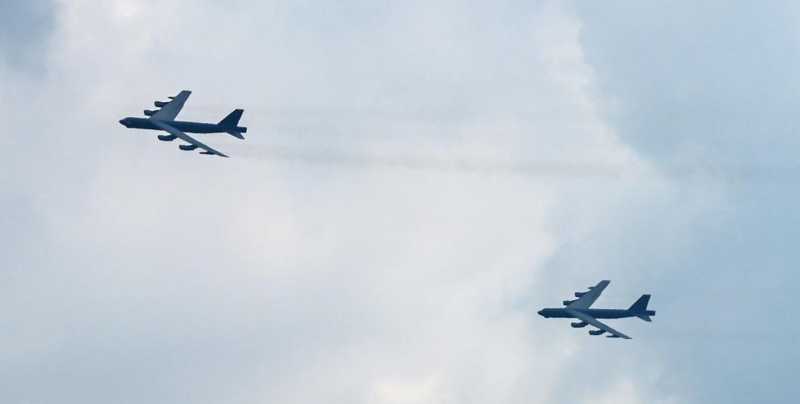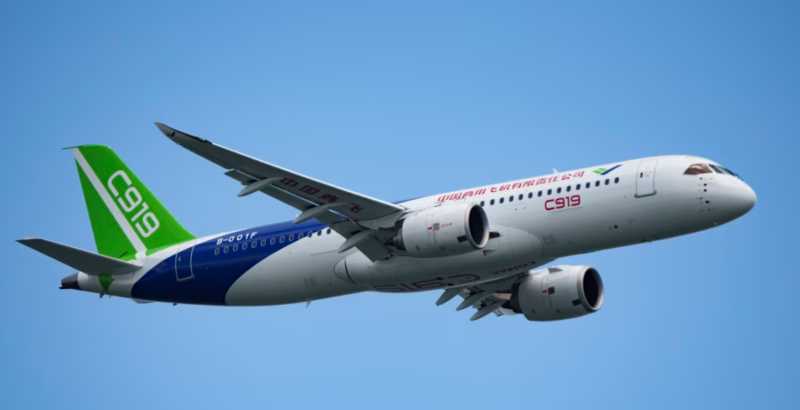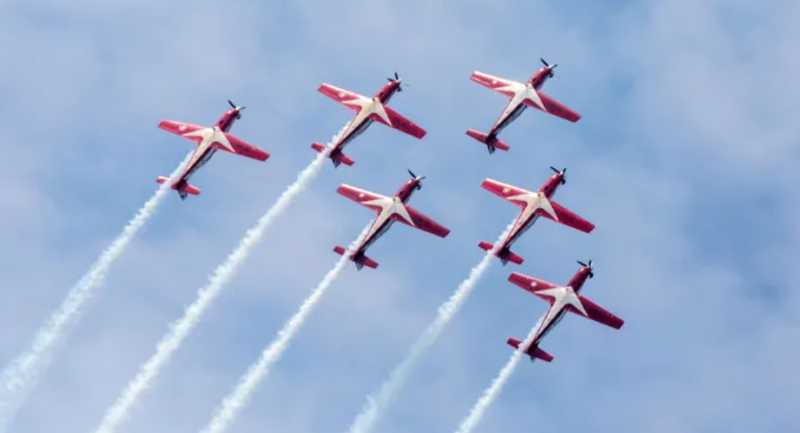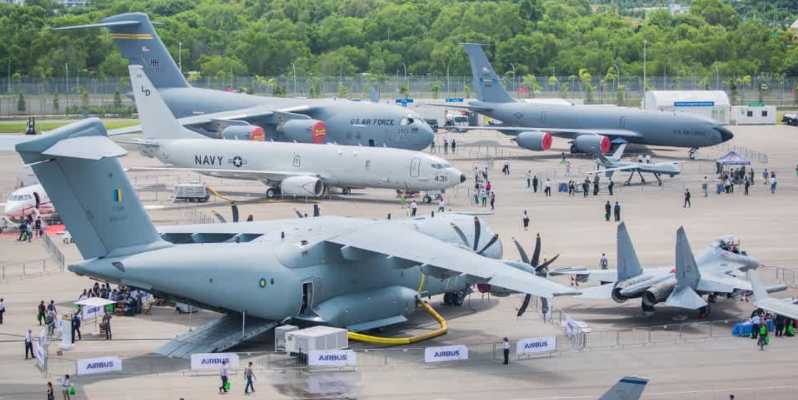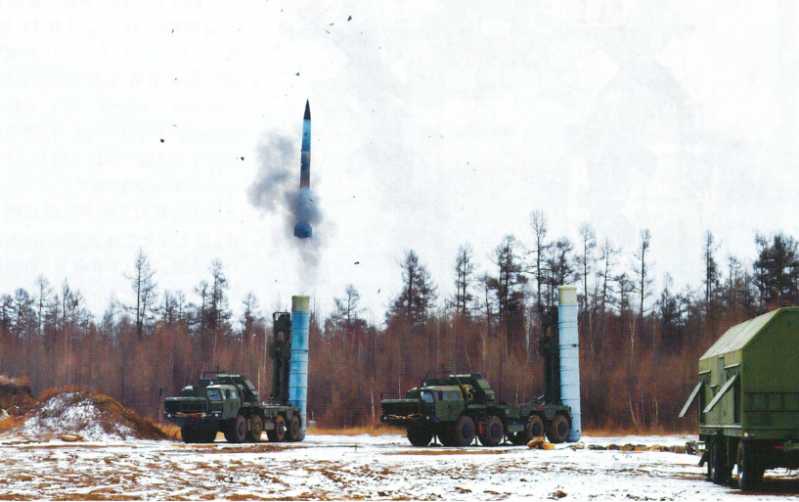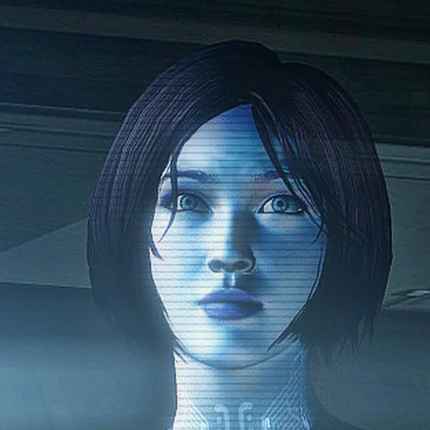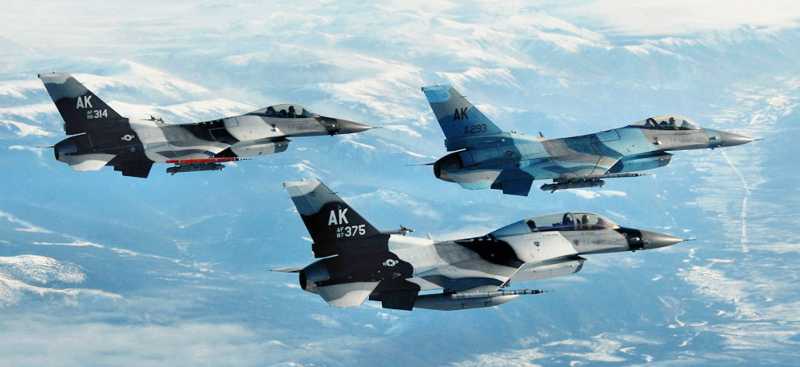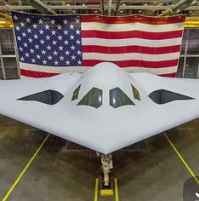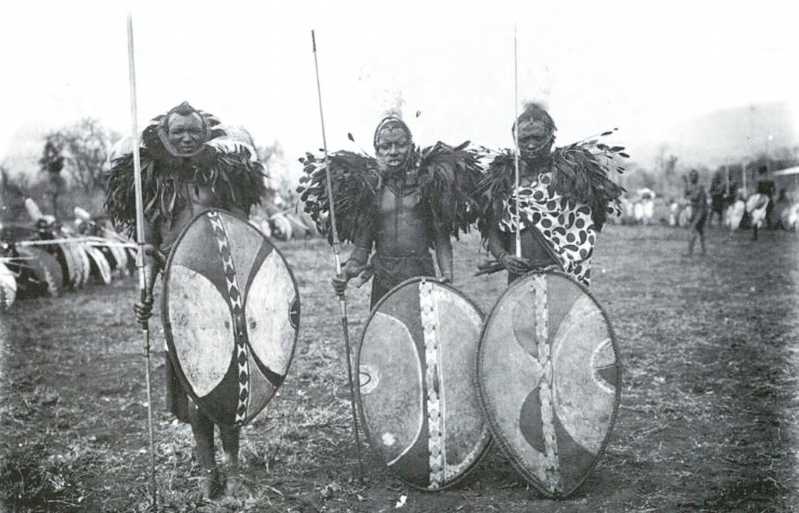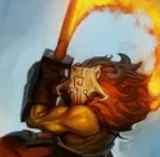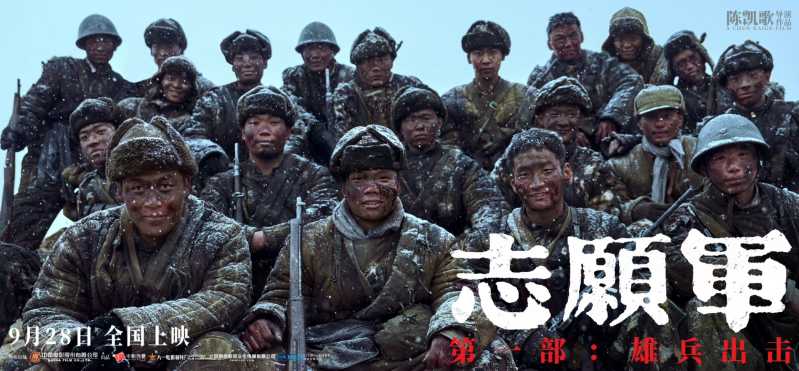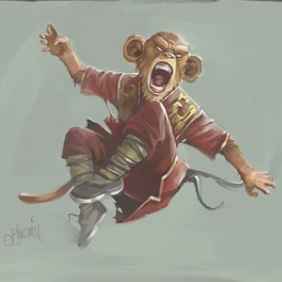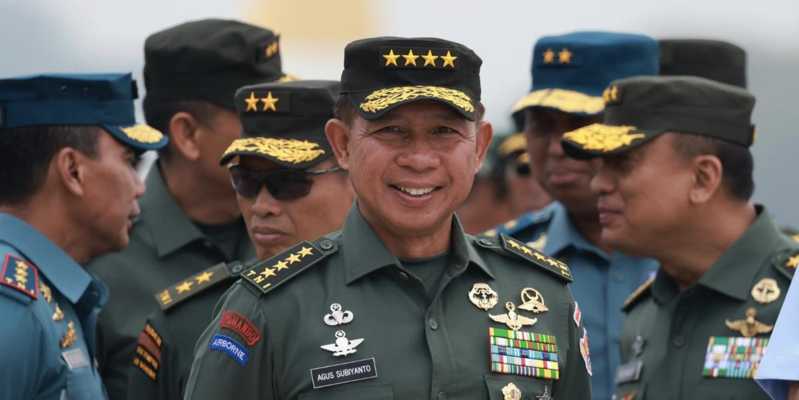In 1953, Major General Dean, the former commander of the 24th Division of the U.S. Army, returned to his home in the United States. Stepping into the house after three years, Dean saw the "Medal of Honor" hanging on the wall, which represents the highest honor of the U.S. military. This is the medal awarded to Dean by the U.S. government in February 1951. The reason for the U.S. government to award this medal is clearly written next to the medal: Major General William Dean, gloriously "died in battle" for the honor of the United States.
1. Fighting the Tank Squad
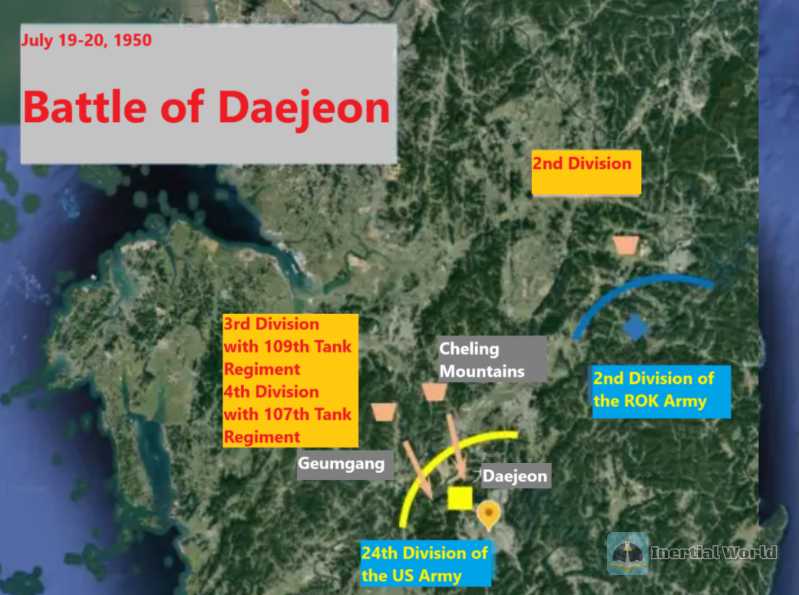
On July 19, the Korean People’s Army had approached the outskirts of Daejeon. In order to boost the morale of the 24th Division as much as possible, Dean decided to stay in Daejeon until the last moment before evacuating. It was this idea that led to Dean’s tragic fate later. However, what is even more tragic is that Dean’s determination did not have any positive impact on the 24th Division, which had been defeated in successive battles. At this time, the 24th Division had completely fallen into the abyss of failure and could not extricate itself.
This group of young soldiers who had been eating, drinking and having fun in Japan for several years were suddenly thrown into a battlefield of blood and fire, followed by uninterrupted routs, defeats, casualties, and retreats. Since landing on the Korean Peninsula, the 24th Division has not won any battles, and the entire division has completely collapsed. In the Battle of Daejeon, the performance of the US military reached the lowest point after landing: after the North Korean army launched an attack, the two US military battalions guarding the periphery of Daejeon actually retreated without notifying their superiors. The absence of his subordinates caused Dean to be completely unaware that the periphery of Daejeon had been lost. On the evening of the 19th, Dean, who had not received any news, even felt that the situation was not bad, so he left the command post at ease and found an abandoned shabby house to sleep.
In the early morning of the 20th, Dean was awakened by the sound of tank guns. When Dean got up, he found that the North Korean tanks had entered the city of Daejeon, and the nearest tank was just a few streets away from Dean’s shabby house. When Dean hurried back to the command post, he found that the post had already been in chaos and many combat units had lost contact. Then, something even more outrageous happened. An unprotected T-34 rumbled past the door of the 24th Division headquarters. So, the commander of the 24th Division, former commander-in-chief of the US military in North Korea, and Major General of the US Army, Dean decided to leave his position as the commander of the division and become an ordinary American soldier again. Dean picked up a brand new "Super Bazooka" anti-tank rocket and began to track the T-34 with an adjutant and an interpreter.
Dean found his prey at a corner. The T-34 was parked in the middle of the street. So, Dean led the team to quietly sneak into the house next to the street and came to the top of the tank. Dean recalled: "I could spit on the barrel of the tank." Dean commanded the anti-tank team to fire three rockets at the tank. The first new large-caliber rocket penetrated the T-34 armor and the tank was destroyed on the spot.
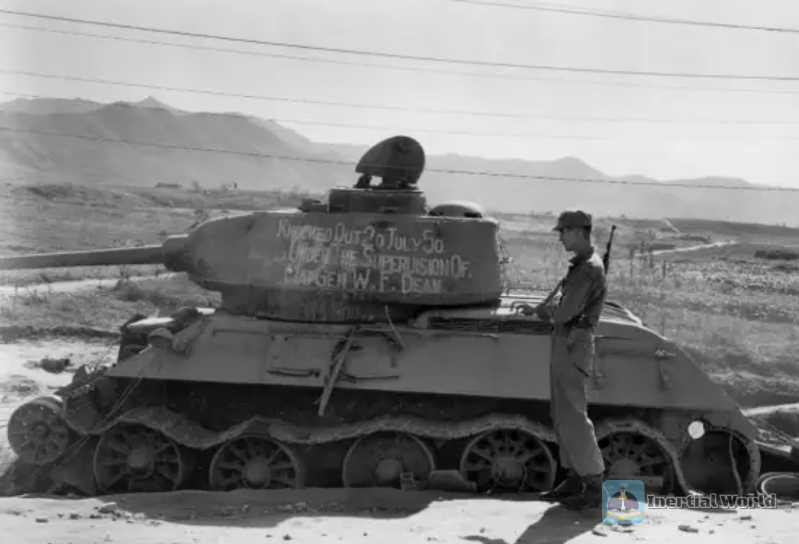
After destroying the tank, Dean led the anti-tank team to continue looking for prey in Daejeon. It was not until dusk that he returned to the headquarters with satisfaction. At this time, the US troops in Daejeon were already in complete chaos. Dean issued his only order: retreat as a whole. On the evening of the 20th, the US troops began to evacuate from Daejeon with difficulty. The vanguard of the 1st Cavalry Division and an M24 tank company rushed to Daejeon to support the retreat of the 24th Division. Under the cover of the brother troops, the remnants of the 24th Division were able to escape from Daejeon smoothly.
However, Dean himself did not get away - Dean’s jeep was behind the team and was blocked by the North Korean flanking troops. The jeep turned the wrong way in a panic and plunged into the mountains. The US military lost contact with Dean and determined that he had died in the line of duty. In 1951, Dean was awarded the Medal of Honor. However, Dean did not die. After getting lost in the mountains, he hid in the mountains for 35 days. On the 36th day, Dean tried to find the North Korean people and asked for food but was captured by the North Korean army. In 1951, shortly after the United States awarded Dean the Medal of Honor, an American reporter suddenly found the unlucky general who had been declared dead in the Volunteer Army’s prisoner-of-war camp. In 1953, Dean returned to the United States after both sides repatriated the prisoners of war. When he returned home, Dean wrote a letter to the Chinese and North Korean leaders, saying that he wanted to "express his special feelings away from the battlefield as an ordinary soldier."
Ghost Division
Although the 24th Division suffered a disastrous defeat in Daejeon—even the division commander was captured—the 24th Division’s persistence in Daejeon bought time for the arrival of follow-up U.S. troops. On July 21, the 1st Cavalry Division and the 25th Division of the U.S. Army had all arrived at the front line, and the 24th Division was finally able to withdraw to the rear for rest. The follow-up U.S. troops were still rushing to Busan, and the U.S.-ROK coalition forces were expected to stabilize.
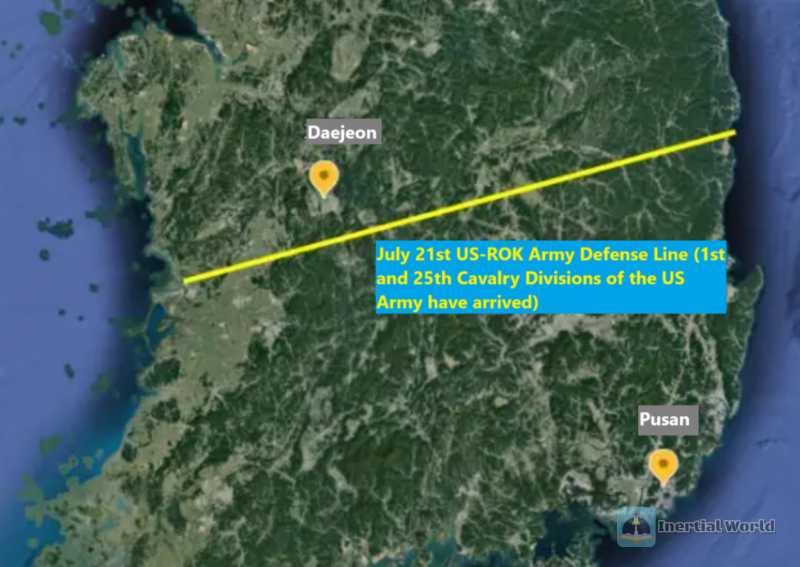
Just when Lieutenant General Walker, the commander-in-chief of the U.S.-ROK Army, began to feel that the situation had finally improved, a terrifying news suddenly reached Walker’s headquarters. On July 23, a U.S. reconnaissance plane reported: There was a North Korean army on the west coast of the Korean Peninsula, moving at a speed of about 3.2 kilometers per hour; on the same afternoon, the three ports of Mokpo, Boseong, and Yeosu in the southwest of the Korean Peninsula were occupied by the North Korean army. The news of the loss of these three ports shocked Walker. As early as July 20, the reconnaissance plane had discovered this force on the west coast, but because it was impossible to distinguish the number of people, the US military determined that this was a small roundabout force of the North Korean 4th Division. However, the capture of the three ports on the same day shows a terrible problem. The number of people in this force is more than the US military expected!
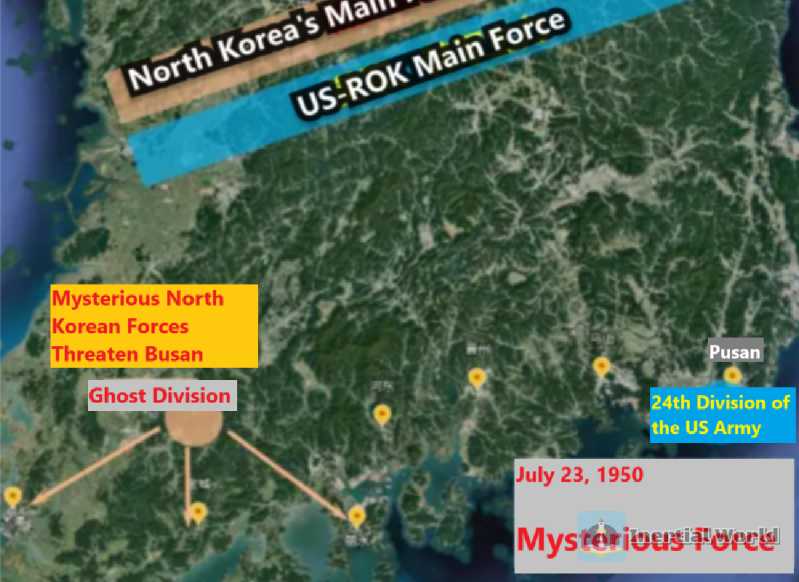
Just take a look at the map, and you will know why this problem is "terrifying" for the US military: Now, the main forces of the US and South Korean forces are all in a stalemate with the main forces of North Korea near Daejeon. There is no main force in the southwest of the entire Korean Peninsula! Once this large force goes straight to Busan, the consequences will be disastrous. For the US military, no troops are allowed to approach or even surround Busan, otherwise, the US military will lose the only supply channel on the Korean Peninsula, and the troops that have landed will immediately lose logistical support, and subsequent reinforcements will not be able to be deployed. This is undoubtedly the end of the US military.
At this time, the only unit Walker had was the 24th Division, which had just been replaced from the front line and was resting in Busan. If possible, Walker certainly didn’t want to use this unlucky division to plug the gap, but he had no choice. Walker called the new commander of the 24th Division, Major General George, and assigned the 29th Regiment of the US Army, which had just arrived in Busan, to the 24th Division, and ordered George to immediately establish a defense line on the west side of Busan, and to prevent the North Korean troops from reaching Busan at all costs.
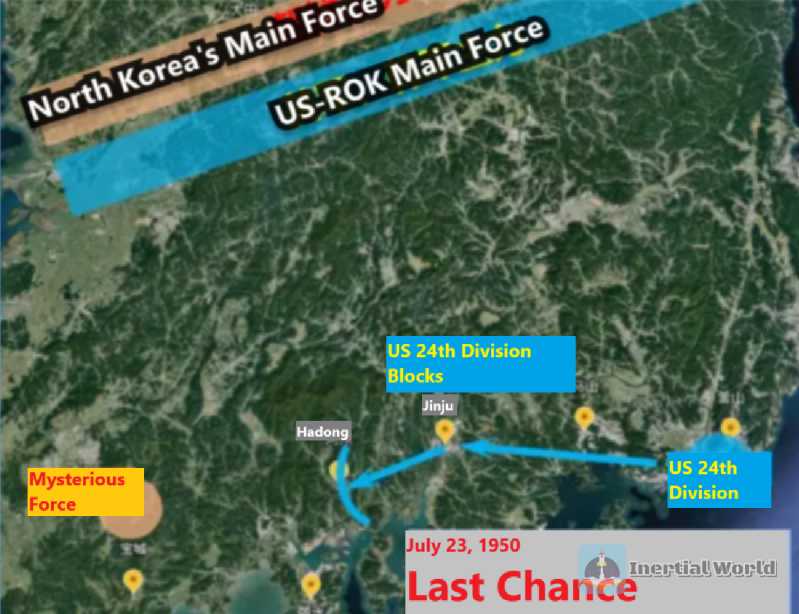
George took the order and left, and Walker secretly rejoiced: Fortunately, it was discovered early. Although the morale of the 24th Division was low at this time, no matter how miserable it was, it was still a regular US military unit. It would not be a problem to stop a detachment. Walker’s rejoicing lasted for a total of 3 days. On July 26, the US troops on the Hedong front were ambushed by the Korean People’s Army, and Hedong was lost, and a battalion was wiped out. On July 27, even more terrible news came. The 34th Regiment of the 24th Division of the US Army heading towards Jinzhou in Hedong was defeated, and the remnants retreated to Jinzhou. The combat effectiveness of this mysterious North Korean army was really amazing.
In extreme shock, Walker no longer dared to have any fluke mentality. He sent all the troops that could move to reinforce Jinzhou: he not only transferred 1 US Corps and 2 Korean Corps from the tense main battle line to Jinzhou to help the 24th Division strengthen its defense, but also sent 3 M26 tanks that had just arrived in North Korea. In the end, Walker, who had no troops to send, ordered all the new US recruits who landed in North Korea not to waste time in Busan, but to go directly to Jinzhou to report to the troops! After sending all the forces in his hands to Jinzhou, Walker got an almost desperate ending: Jinzhou fell on July 31.
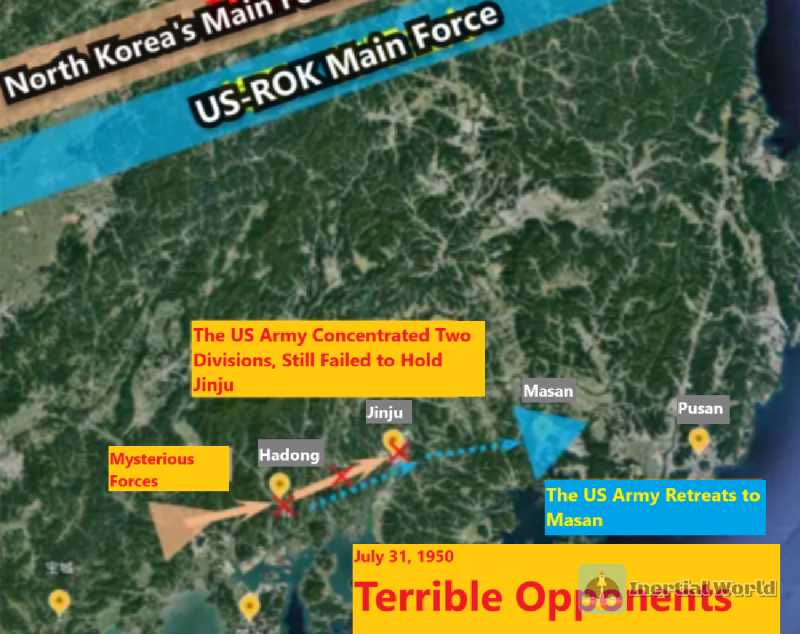
On the day Jinzhou fell, Walker finally learned the name of this terrifying opponent: the 6th Division of the 1st Army of the Korean People’s Army.
Three, a fatal blow
This ultra-long-distance raid, which was very unlike the Soviet style, was of course a masterpiece of the Chinese People’s Liberation Army. This was the task assigned to Fang Hushan and the 6th Division by Kim Ung, the commander of the 1st Army of North Korea. Kim Ung was very familiar with the 6th Division. Like many Korean fighters, Kim Ung had fought with the People’s Liberation Army in Northeast China for many years. In February 1946, Kim Ung was incorporated into the "Li Hongguang Detachment" composed of Korean fighters and served as the detachment leader, while Fang Hushan was the political commissar of this detachment. The two led the Li Hongguang Detachment to make great achievements in the Northeast Liberation War. In 1947, Jin Xiong left Li Hongguang’s detachment and returned to North Korea to help the motherland train the army. Fang Hushan stayed and was reorganized into the 4th Independent Division of the Northeast Field Army and the 166th Division of the People’s Liberation Army with the detachment. It was not until 1949 that he returned to North Korea. The Li Hongguang detachment became the 6th Division of the People’s Army. After the outbreak of the Korean War, the 6th Division was assigned to the command of Jin Xiong’s 1st Army, and the old partners met again. The old leader Jin Xiong was naturally the most clear about the combat effectiveness of Fang Hushan and the 6th Division. It was precisely because he knew the strength of the 6th Division that after the capture of Seoul, Jin Xiong did not let the 6th Division take on the attack mission that required a lot of consumption, but let the 6th Division stay in the second line to recuperate and wait for the best time to let this trump card take action. After discovering that the US military had joined the war, Jin Xiong immediately keenly discovered where the sharp blade of the 6th Division should be pointed-Pusan. As long as Busan is taken, the US military will no longer have the possibility of reinforcement. This will be the blow that determines the outcome of the entire war.
The 6th Division, attack! Bypassing the frontal defense line of the two armies, Fang Hushan led the 6th Division to the southwest of the Korean Peninsula without stopping. Without much effort, the 6th Division defeated the 7th Division of the South Korean Army on the flank of the US Army, and then the 6th Division completely disappeared from the US Army’s sight.
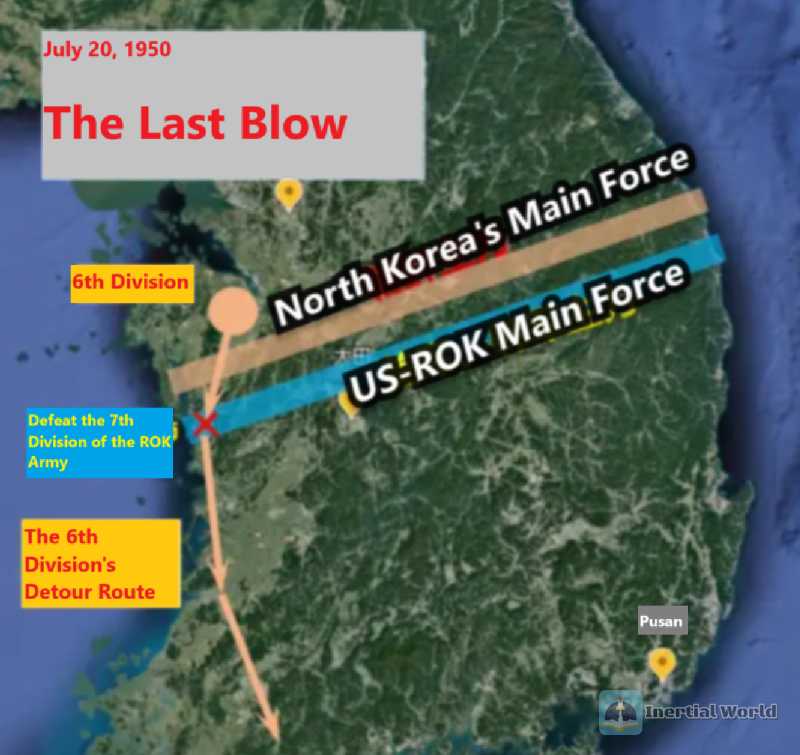
When the 6th Division appeared again, Fang Hushan had captured all the ports in the southwest of North Korea in one breath, and the entire southwest of North Korea was captured by the 6th Division alone. However, the 6th Division was exposed a little too early, and the US Army immediately placed all its reserve troops between the 6th Division and Busan, and the only way to attack was to attack hard. Relying on Fang Hushan’s clever tactics and the unparalleled combat effectiveness of the former PLA soldiers, Fang Hushan led the 6th Division to smash every blocking force sent by the US Army. In the Battle of Jinju, Fang Hushan and the 6th Division shone the most brilliantly: they braved the US military’s day and night aerial bombardment, and without any support and logistics, they destroyed the garrison consisting of 2 divisions of the US-ROK coalition with the inferior force of 1 division.
The result of the Battle of Jinju shocked the entire North Korea, and even the senior officials in Tokyo and Washington were shocked. After the fall of Jinju, Busan only had Masan as the last line of defense. If Masan was captured again, the US military would be driven into the sea. The advance of the 6th Division changed the entire combat deployment of the US military. The US troops that were originally preparing to implement the landing operation immediately turned around and rushed to Busan. Not only that, the US government was so scared that it immediately agreed to send the US 3rd (stationed in Europe) and 7th (stationed in Japan) divisions to fight in North Korea. In the crisis of total failure, Lieutenant General Walker showed the highest courtesy to the 6th Division of North Korea: he ordered the 25th Division of the US Army to withdraw from the front line of the main confrontation and move all to the Masan line to specifically block the terrifying 6th Division.
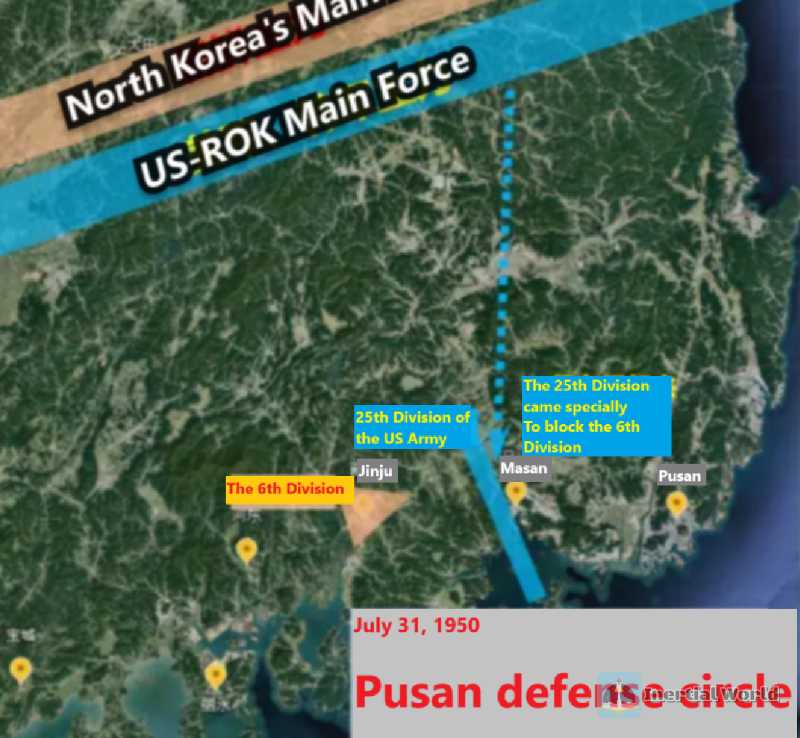
After the withdrawal of the 25th Division, the US and South Korean troops no longer had the strength to defend the entire front line, so Walker immediately issued the famous order: "All US and South Korean troops immediately retreat to the Nakdong River line to establish the last line of defense in Busan."
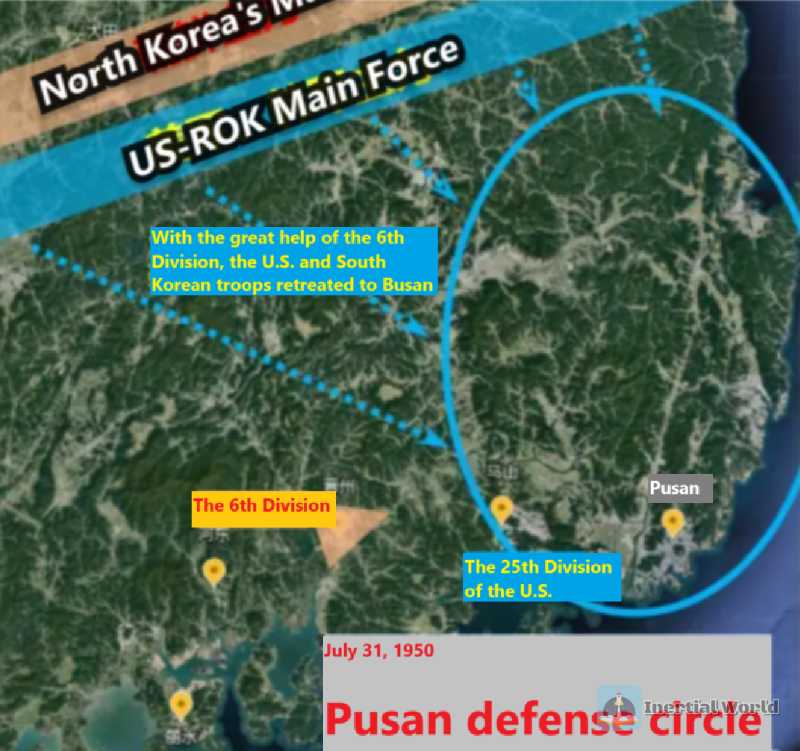
All US and South Korean troops began to retreat frantically to Busan. Although everyone knew that this would make their front line unbearably small, they had no choice.
Fang Hushan’s 6th Division completely changed the entire battle situation. The only pity was that Fang Hushan failed to take the last step. In fact, no matter how the US military responded next, the 6th Division was actually unable to move forward. Fang Hushan’s 6th Division had been seriously short of supplies for many days, and had been bombed by the US military for many days. It was an incredible miracle that they were able to capture Jinju with an absolutely inferior force. After capturing Jinju, the 6th Division, which originally had more than 10,000 soldiers, had less than 5,000 soldiers left. They were not even able to capture Masan, let alone further threaten Busan. However, Fang Hushan had achieved a victory that could be called a miracle: the 6th Division, on its own, completely defeated the entire defense line of the US-ROK coalition forces, forcing the US-ROK forces to retreat to the small area around Busan. At this moment, the victory that Kim Il-sung had dreamed of seemed to be within reach.
Author comments
1. Dean’s attack on the tanks seemed very "heroic", but it must be pointed out that as a senior commander, this was an extremely irresponsible and bad practice. As the commander-in-chief of the entire U.S. military in Daejeon, Dean was responsible for the lives of nearly 10,000 U.S. soldiers. As a result, this guy was busy being a hero, which led to the U.S. military in Daejeon being in a state of being unmanned and ultimately defeated very thoroughly. Dean himself has an unshirkable responsibility for this.
2. There is one point that should be specifically explained: the U.S. military at the beginning of the war was completely different from the U.S. military that our army faced after joining the war. At the beginning of the war, most of the front-line soldiers of the U.S. military were young soldiers who had never fought in a war, and many of them were directly pulled into the battlefield without much training. Moreover, because of the temporary addition of a large number of new soldiers, the organization of the US military was completely messed up. Almost no unit was fully staffed, and weapons and ammunition were taken as much as they were given. The most fatal thing was that the defeats at the beginning of the war led to extremely low morale of the US military. In the Battle of Daejeon, many US soldiers did not know how to use the newly transported "Super Bazooka" anti-tank rocket launchers. Facing tanks, they just ran away, and a large number of rocket launchers were directly thrown on the roadside.
I have said before that the US military at this time was basically at the level of the South Korean army, which is not an exaggeration at all.
When the Volunteer Army joined, all US soldiers had experienced at least several bloody battles and completely transformed into qualified soldiers on the battlefield; at that time, the entire supply line of the US military had been built, all US divisions were fully equipped and fully staffed (this is very important), and morale almost reached its peak. At that time, the US military finally returned to (or even surpassed) the level of the US military in the late World War II.
3. The ultra-long-distance raid of the 6th Division can be said to be the only bright spot in the early stage of the entire Korean War - finally someone did not build a stronghold and fight a stupid battle.
4. This long-distance raid is controversial in history. The main point of controversy is that Fang Hushan should not attack the three ports on the 23rd, which led to the complete exposure of his whereabouts. From the sand table simulation, the US military did not set up defenses at all before the 6th Division captured the port. If Fang Hushan went straight to Busan regardless of everything, there was a great probability that he could rush all the way to Busan Port. If we consider that the 24th Division in Busan at that time was not the opponent of the 6th Division at all, Fang Hushan might indeed take Busan in one fell swoop, and even directly end the Korean War.
5. Because North Korea has not released relevant information so far (Fang Hushan did not leave any memoirs later), we have no way of knowing the reason for Fang Hushan’s decision at the time. There are currently two more recognized speculations: one is that Fang Hushan was worried that the US military would land from these three ports and surround him; the second is that the 6th Division was already seriously short of food at the time and the troops were in urgent need of supplies. Taking down the port can solve both problems (especially the problem of food shortage) at the same time, so Fang Hushan ordered the attack.
6. I personally think that I need to add one more point, that is, Fang Hushan did not expect that the US military was completely defenseless along the way to Busan.
7. Here I want to talk to you about the fog of war. If you often read the history of war, you will definitely find that many decisions seem stupid to future generations. In fact, many times, the generals on both sides are just like competing to see who made fewer mistakes and whose stupidity was less fatal.
(If you don’t understand what this feels like, I recommend you to read the real history of the Battle of Coral Island and the Battle of Midway. It is guaranteed to be different from what you imagine)
The main reason why these generals who are picked from thousands of miles away look so "silly" is the fog of war. On the real battlefield, where is the enemy? How many people are there? How is the combat effectiveness? What is the intention? There are no answers to these questions. It is no exaggeration to say that sometimes even the commanders who won the battles could not answer the above questions.
When looking back at history, the most fatal mistake is to regard the information that the history books have painstakingly summarized for you (sometimes it takes decades to summarize this information) as the intelligence that the generals on the battlefield "should" know. This kind of thinking will lead the readers to think that they are a hundred times smarter than the generals, and only hate that they did not go to the battlefield - so, another keyboard general rose up.
8. Back to Fang Hushan, he probably thought that there must be US troops stationed outside Busan, and he was worried that the 6th Division would be unable to break through the defense line when they were exhausted and hungry, and ultimately failed to complete the mission. Therefore, he chose to attack the port to collect supplies and rest before starting the attack.
9. Although there are many regrets, no matter from any angle, Fang Hushan and the 6th Division have completed the mission excellently. The 6th Division’s operation received the highest praise from the enemy and was publicly praised by the US military history as "one of the most successful maneuvers in the Korean War."
10. Although he held a low position, Fang Hushan was undoubtedly the best general in North Korea. The 6th Division was praised by Americans as the "Ghost Division", and Fang Hushan himself was given cartoon-like names such as "Dream of the Mountain" and "Assassin of the Mist" by Japanese war history researchers who were very good at giving nicknames. This guy’s life was very legendary, and we will often see him in the future.
(To be continued, remember to like it)


